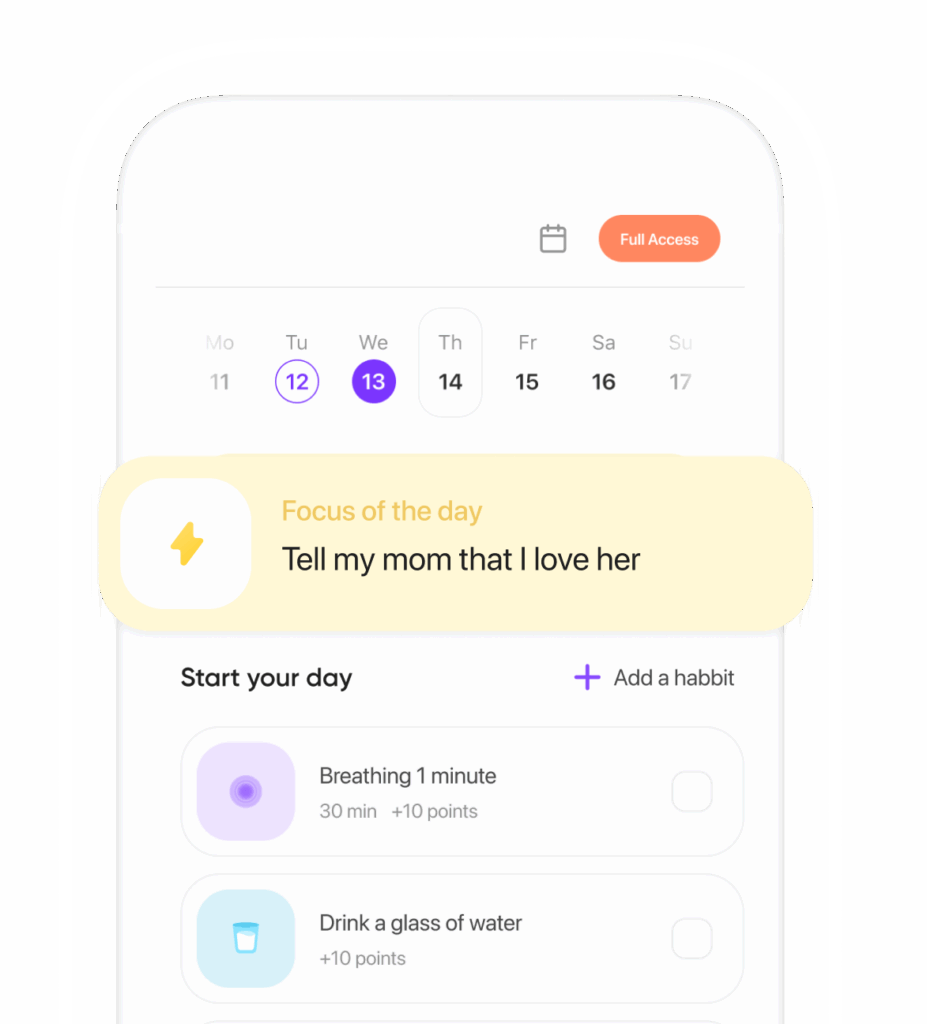Table of Contents
- Why Mornings Matter
- Circadian Rhythms and Mental Health
- Step 1: Mindful Meditation
- Step 2: Exercise to Energize
- Step 3: Journaling for Clarity
- Step 4: Visualization for Success
- Step 5: Affirmations for Positivity
- Integrating Nutrition in Your Morning Routine
- The Benefits of a Digital Detox
- Customizing Your Miracle Morning
- Overcoming Challenges
The Science Behind Morning Routines
Why Mornings Matter
The dawn hours—it’s when you set the day’s tone. A study shared by the American Psychological Association suggested that starting with positive habits can lift mood, ease stress, and boost cognitive performance throughout the day (APA, 2020). With mornings offering moments of quiet reflection, a chance for planning, they can help minimize the day’s ensuing chaos.
Circadian Rhythms and Mental Health
The body’s circadian rhythms dictate our natural penchant for sleep and wakefulness, greatly influencing our daily feelings. Disruptions here might trigger mood imbalances (Forbes et al., 2019). Yet, establishing a consistent morning ritual could align these rhythms, introducing stability and predictability—both vital for mental wellness.
Creating Your Miracle Morning
Step 1: Mindful Meditation
Meditation stands as a foundational element of beneficial morning practices. A comprehensive review in JAMA Internal Medicine revealed that programs on mindfulness meditation notably alleviate anxiety, depression, and even pain (Goyal et al., 2014). Beginning with a brief 10-minute meditation can reduce cortisol levels, instilling calm from the outset.
Tips for Mindful Mornings
- Set a Timer: Start at five minutes and expand as you ease into it.
- Focus on Breathing: Regular, deep breaths improve meditation’s impact.
- Guided Sessions: New to this? Apps and online resources can help.
Step 2: Exercise to Energize
Exercise releases endorphins, the body’s natural mood enhancers. As reported by the Journal of Clinical Psychiatry, physical activity serves as a potent antidepressant for many (Cooney et al., 2013). Infusing mornings with movement—be it yoga, a jog, or a stroll—can notably bolster mental health.
Effective Morning Workouts
- Yoga: Ideal for boosting flexibility and mindfulness—a gentle beginning.
- High-Intensity Interval Training (HIIT): Swift and impactful for tight schedules.
- Morning Walks: Enhance with a podcast or music, for added delight.
Step 3: Journaling for Clarity
Journaling emerges as a compelling mental health tool. A research piece in the Journal of Experimental Psychology indicated that expressing emotional experiences through writing diminishes stress and enhances emotional health (Pennebaker et al., 1997). Morning reflections—jotting down aspirations, musings, or gratitude—set a positive trajectory for the day.
How to Start Journaling
- Gratitude Lists: Note three morning gratitudes.
- Daily Goals: Define your targets and emotional state.
- Reflective Questioning: Probe into your feelings and dreams.
Step 4: Visualization for Success
Visualization involves picturing goals as already achieved. Supported by research in the Journal of Applied Sport Psychology, this practice can boost drive and self-assurance (Short et al., 2002). By imagining a prosperous, satisfying day, you chart a course toward that envisioned reality.
Visualization Techniques
- Vision Boards: Construct tangible or digital collections with inspiring visuals and quotes.
- Guided Imagery: Engage with guided visualization exercises to focus thought.
- Detailed Daydreaming: Spend moments vividly picturing your perfect day.
Step 5: Affirmations for Positivity
Positive affirmations, those powerful statements, can deflate self-doubt and unproductive thoughts. A study in Social Cognitive and Affective Neuroscience unveiled that self-affirmation enhances brain regions related to self-reflection and worth (Cascio et al., 2016). Reiterating these each morning can uplift self-regard and resilience.
Crafting Effective Affirmations
- Be Specific: Shape affirmations around your objectives and trials.
- Use Present Tense: They should mirror the present reality you wish to craft.
- Positive Language: Center on goals to attain, not things to evade.
Integrating Nutrition in Your Morning Routine
Breakfast and Brain Function
“Breakfast is essential,” as the saying goes—backed by science. A wholesome morning meal can enhance cognitive prowess and mood, per findings in the British Journal of Nutrition (Smith, 2010). Aim to incorporate complex carbs, proteins, and good fats.
Nutritious Breakfast Ideas
- Oatmeal with Berries: Packed with energy and antioxidants.
- Smoothie Bowls: Blend greens, fruits, and seeds for a nutritious start.
- Avocado Toast: Fills you with healthy fats and fiber.
The Benefits of a Digital Detox
Limiting Screen Time
Starting the day by looking at screens can raise stress and shift focus from mindful endeavors. Research in Computers in Human Behavior linked screen exposure, especially social media, with heightened anxiety and depression (Twenge et al., 2018). Opt for screen-free mornings to boost focus and deflate stress.
Replacing Screens with Connection
Instead of diving into emails or social media, connect—be it with family, pets, or nature. Such interactions can raise oxytocin, improving mood and fostering contentment.
Customizing Your Miracle Morning
Personalize Your Routine
While the Miracle Morning concept offers a sturdy base, its effectiveness lies in customization. Adapt the routine to suit personal preferences and lifestyle. As per the Journal of Occupational Health Psychology, personal tailoring can boost compliance and efficacy (Sonnentag et al., 2017).
Steps to Personalization
- Trial and Error: Test various activities to discover what best fits you.
- Adjust for Lifestyle: If time’s tight, highlight high-impact activities.
- Seasonal Changes: Alter your routine based on daylight or climate shifts.
Consistency is Key
The Miracle Morning’s benefits grow over time. Routine consistency, even on weekends, strengthens its impact. A study in Behavior Research and Therapy emphasized that routine adherence curtails stress and uplifts wellbeing (Flett et al., 2020).
Overcoming Challenges
Dealing with Interruptions
Life’s unpredictability often derails routines. Foreseeing disruptions is key to maintaining continuity. Adaptability, rather than abandonment, should be your goal when interruptions happen.
Strategies for Managing Interruptions
- Time Buffer: Account for unforeseen circumstances in your morning.
Ready to transform your life? Install now ↴
Join 1.5M+ people using AI-powered app for better mental health, habits, and happiness. 90% of users report positive changes in 2 weeks.


